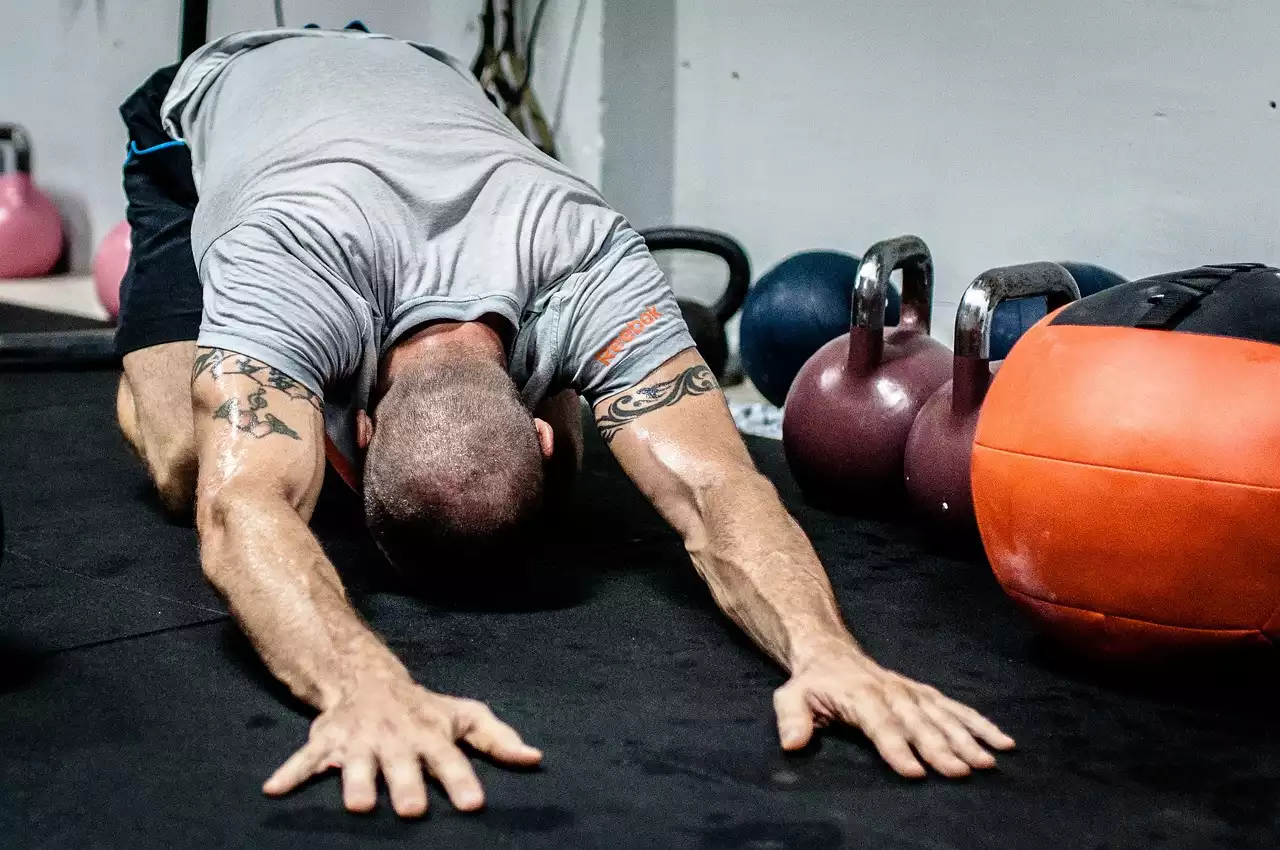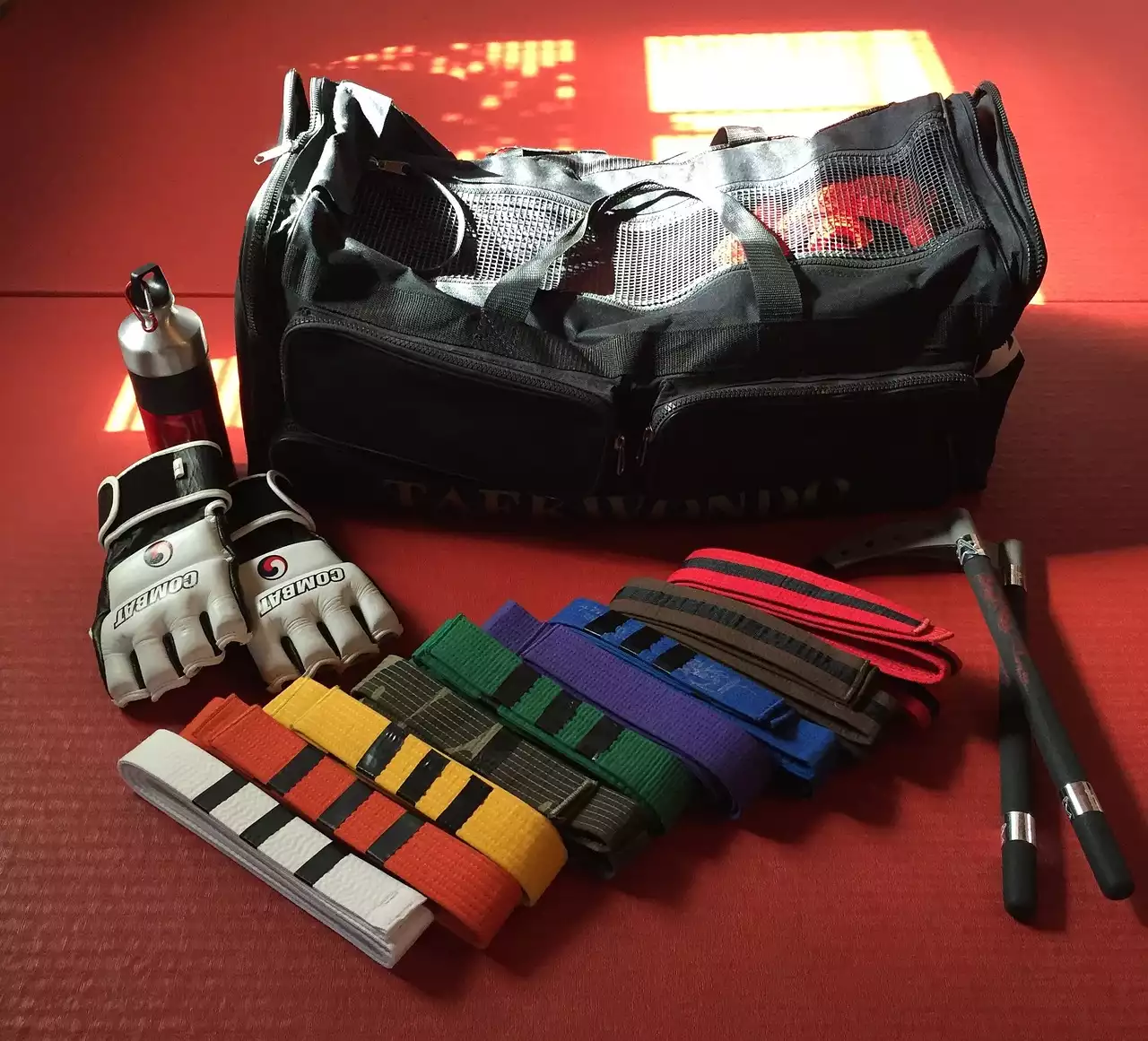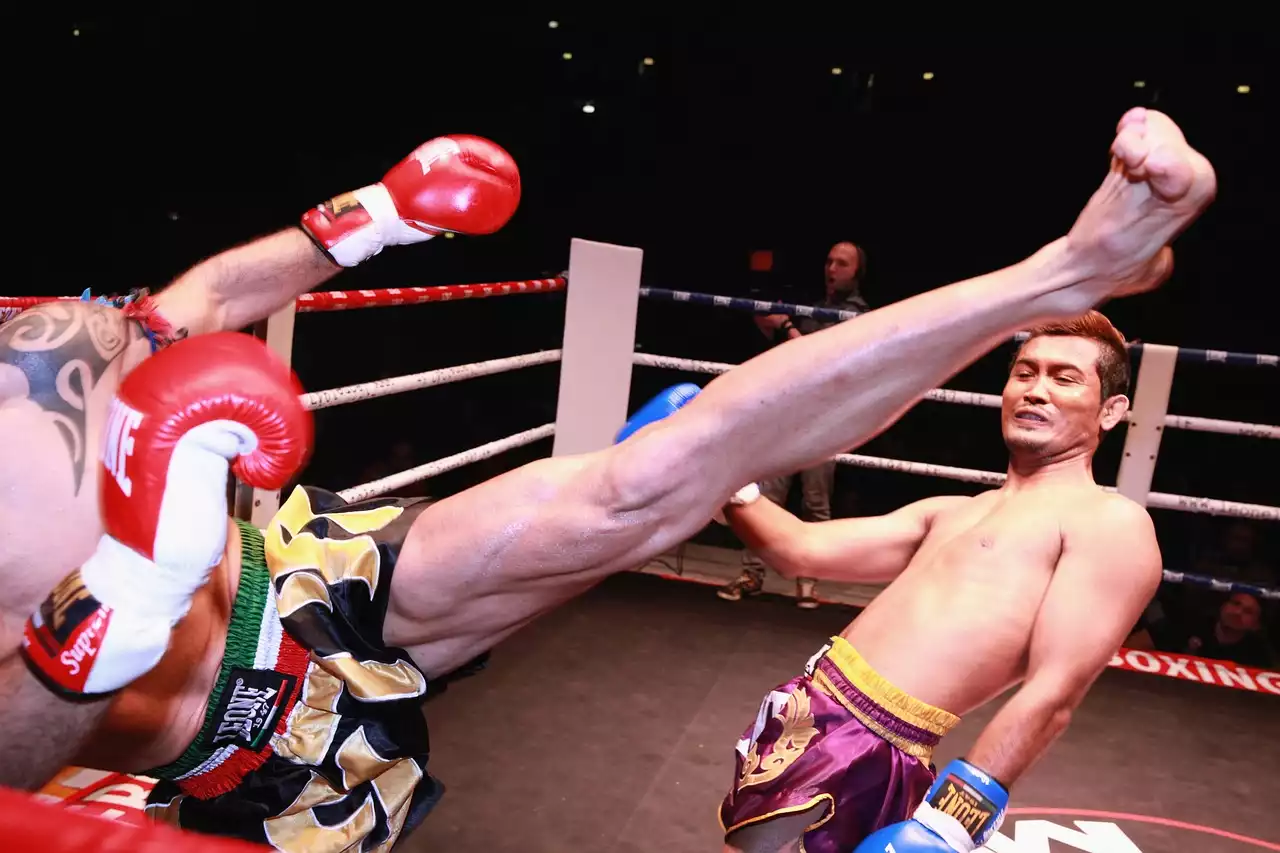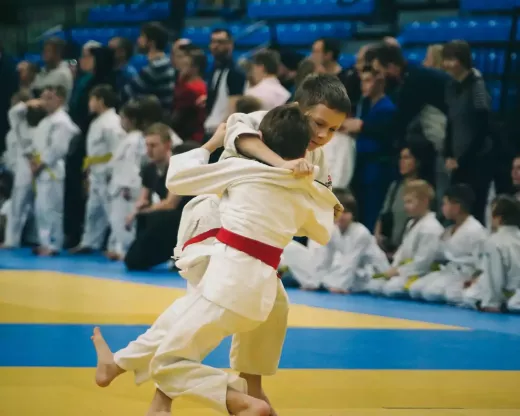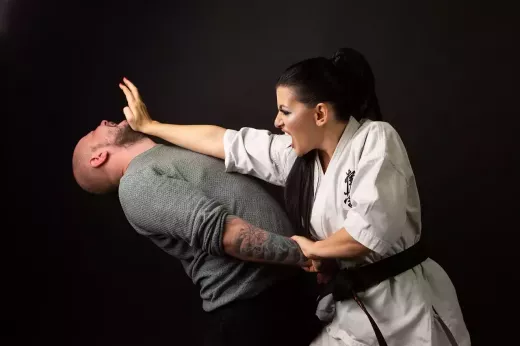The Physical Benefits of Martial Arts
Martial arts is a full-body workout that can help you develop strength, endurance, and flexibility. Unlike traditional gym workouts, martial arts involves dynamic movements that engage multiple muscle groups at once. This helps to improve your overall fitness level and can also help prevent injuries.
One of the key physical benefits of martial arts is improved cardiovascular health. Many martial arts styles incorporate high-intensity interval training (HIIT) which can help you develop endurance and improve your heart health. Additionally, martial arts involves a lot of repetitive movements which can help to build muscle and increase your overall strength.
Another benefit of practicing martial arts is improved balance and coordination. The movements involved in martial arts require a great deal of focus and body awareness, which can help to improve your balance and coordination over time. This can be particularly beneficial for older adults who may be at risk for falls.
The Mental Benefits of Martial Arts
Martial arts is not just a physical workout, it can also be a mental workout as well. Many people find that practicing martial arts helps them to improve their focus, discipline, and stress management skills. The mental benefits of martial arts are just as important as the physical benefits, and can help you to achieve a more balanced and healthy lifestyle.
One of the key mental benefits of martial arts is increased focus. The movements involved in martial arts require a great deal of concentration and attention to detail, which can help to improve your ability to focus in other areas of your life. Additionally, many martial arts styles incorporate meditation and breathing techniques which can help to calm the mind and reduce stress.
Another benefit of practicing martial arts is improved discipline. Martial arts requires a great deal of self-discipline and dedication, which can help you to develop these skills in other areas of your life as well. The discipline required to master a martial arts technique can also help to improve your confidence and self-esteem.
Different Types of Martial Arts
There are many different types of martial arts to choose from, each with its own unique benefits and characteristics. Some of the most popular types of martial arts include:
Karate
Karate is a Japanese martial art that focuses on striking techniques such as punches, kicks, and knee strikes. It also incorporates blocking and grappling techniques, and is known for its emphasis on discipline and traditional values.
Jiu-Jitsu
Jiu-Jitsu is a Brazilian martial art that focuses on ground fighting and grappling techniques. It is often used in mixed martial arts competitions and is known for its emphasis on technique and strategy.
Taekwondo
Taekwondo is a Korean martial art that focuses on kicking techniques such as roundhouse kicks and spinning kicks. It also incorporates punches, blocks, and throws, and is known for its emphasis on speed and agility.
Muay Thai
Muay Thai is a Thai martial art that focuses on striking techniques such as punches, kicks, and elbow strikes. It also incorporates knee strikes and clinching techniques, and is known for its emphasis on power and endurance.
How to Choose the Right Martial Art for You
Choosing the right martial art for you can be a daunting task, but it's important to consider your goals and interests when making your decision. If you're interested in self-defense, you may want to consider a martial art that focuses on striking techniques. If you're interested in improving your flexibility and balance, you may want to consider a martial art that incorporates grappling techniques.
It's also important to consider the instructor and the training environment when choosing a martial art. Look for an instructor who is knowledgeable and experienced, and who emphasizes safety and proper technique. Additionally, look for a training environment that is supportive and welcoming, and that encourages you to push yourself to improve.
Getting Started with Martial Arts
Getting started with martial arts is easy, but it's important to take it slow and focus on proper technique. Many martial arts studios offer introductory classes for beginners, which can be a great way to get started.
It's also important to invest in the right gear when starting martial arts. This may include a uniform, gloves, shin guards, and a mouthguard. Talk to your instructor about what gear you will need, and make sure to invest in high-quality gear that will protect you during training.
Tips for Beginners
If you're just starting out with martial arts, there are a few tips that can help you get the most out of your training:
- Focus on proper technique: It's important to focus on proper technique from the beginning, as this will help you to avoid injuries and improve your skills over time.
- Take it slow: Don't rush your training, and focus on mastering one technique at a time.
- Listen to your body: If you're feeling fatigued or sore, take a break and rest. It's important to listen to your body and avoid overtraining.
- Be patient: Martial arts takes time and dedication to master. Don't get discouraged if you're not seeing immediate results, and focus on improving a little bit each day.
Advanced Training Techniques
Once you've mastered the basics of martial arts, there are a variety of advanced training techniques that you can incorporate into your training. These may include:
- Sparring: Sparring is a form of training that involves simulated combat with a partner. It can help you to develop your reflexes and improve your technique under pressure.
- Forms: Forms are pre-choreographed sequences of movements that are designed to improve your technique and help you to develop muscle memory.
- Weapon training: Many martial arts styles incorporate weapons training, such as sword or staff techniques. This can help to improve your coordination and add an extra level of challenge to your training.
Common Misconceptions About Martial Arts
There are many misconceptions about martial arts, including the idea that it promotes violence or aggression. In reality, martial arts is a form of self-defense that emphasizes discipline, respect, and control. It can also help to improve your overall fitness and mental health, and is a great way to challenge yourself both physically and mentally.
The Spiritual Aspect of Martial Arts
Finally, it's important to note that martial arts has a spiritual component as well. Many martial arts styles incorporate meditation and other spiritual practices, which can help to improve your mental health and overall well-being. Additionally, martial arts emphasizes values such as respect, humility, and discipline, which can help you to develop a more balanced and compassionate approach to life.

